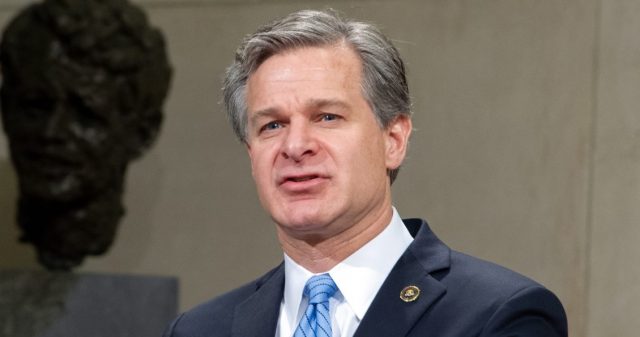FBI Cracks Pensacola Shooter’s iPhone, Still Mad at Apple
Apple is in yet another feud over encryption with the US Federal Bureau of Investigation, this time over iPhones owned by the Pensacola naval base shooter (see “Is the FBI Gearing Up for Another Encryption Fight with Apple?,” 9 January 2020). Apple refused the FBI’s requests to create a backdoor that would enable breaking the iPhone’s encryption. However, the FBI was able to break into one of the phones with an automated passcode guesser, perhaps in part because the iPhones in question were so old: an iPhone 5 and an iPhone 7.
Unsurprisingly, the FBI still isn’t happy. FBI Director Christopher Wray went out of his way in the announcement to say that the agency received “no help from Apple.” Apple quickly responded with a detailed rebuttal on how it had aided the investigation:
We provided every piece of information available to us, including iCloud backups, account information and transactional data for multiple accounts, and we lent continuous and ongoing technical and investigative support to FBI offices in Jacksonville, Pensacola and New York over the months since.
Apple didn’t stop there, accusing the FBI of trying to hurt both its customers and national security in general: “The false claims made about our company are an excuse to weaken encryption and other security measures that protect millions of users and our national security.”

This tension between Apple and the FBI has been going on for years, dating back to the Obama administration and James Comey’s FBI. The standoff will likely continue, given that the government is willfully ignoring the fact that it’s impossible to build products with a backdoor that can be accessed only by law enforcement when supported by a court order.
You can buy master skeleton physical keys online that can do things like unlock apartment building access systems, mailboxes, phone company vaults, subway control systems, parking gate systems, etc. Those keys are all supposed to be protected and not provided to unauthorized individuals. Yet it’s trivial to obtain those keys.
A digital backdoor key is no different. If there is a digital master key it can be stolen. The Bit9 Parity security tool had it’s master keys stolen and they were used to hack customers because the keys signed malware so it would be trusted when normally it would be blocked by the Bit9 Parity tool. Symantec had similar issues and many many other so called security companies.
I really do not believe that Apple or the FBI would be capable of securing master keys. After all, there were civilian contractors working at the FBI running FISA NSA database queries without the appropriate warrants. Thousands of queries were run to the point that someone at the NSA noticed it and raised the issue with McMaster who put a stop to it. These unauthorized queries are terrifying, you enter an SSN, a phone number, an address, a cell phones IMEI, license plates, etc. and you get extremely detailed trace routing information as well as recorded phone calls, email, browsing, etc. They can’t even ensure these systems are not abused.
The beauty of the Apple Secure Enclave is the write only black box. It has a factory generated unique identifier as well as holding all the private keys. You calculate or supply the public key for the public / private key pair to the Secure Enclave and it basically responds with YEA or NAY if it matches a private key inside the chip. But there is no way to read those private keys within the chip. You can reset the chip which throws away all the private keys but you cannot extract them. Not even Apple can gain access.
The FBI wants either a custom workaround or a master public/private key that would allow them to unlock the device. The problem is that master key can be stolen or leaked and that would defeat the entire purpose. DVD & BluRay encryption copy protection schemes were defeated because the keys were leaked and the hardware devices would all have to be replaced to use a new key.
Of course, judging by the photos of the phone, the terrorist had already “cracked” it with a 9mm!